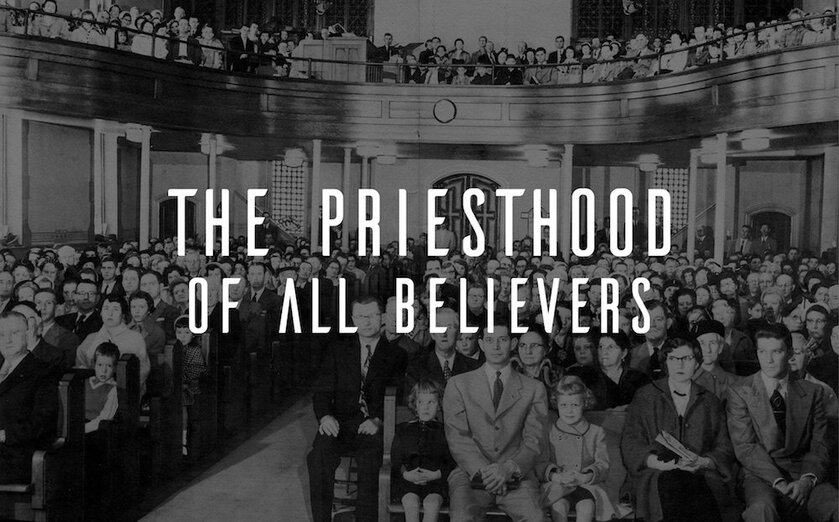Fearless Proclamation: God’s Vision of Assurance and Agape Love in Corinth
Acts 18:9-11
And the Lord said to Paul one night in a vision, "Do not be afraid, but go on speaking and do not be silent, for I am with you, and no one will attack you to harm you, for I have many in this city who are my people." And he stayed a year and six months, teaching the word of God among them.
Paul had baptized Crispus and Gaius, we know this from (1 Corinthians 1:14-17), and this detail offers a glimpse into the fulfillment of God’s promise in the vision he gave Paul. Crispus, as the ruler of the synagogue in Corinth (Acts 18:8), represented a significant conversion, his entire household believed and was baptized, sparking a wave of faith among the Corinthians. Gaius, likely the same one mentioned in Romans 16:23 as Paul’s host, also came to faith early on. These baptisms, personally performed by Paul despite his reluctance to baptize many (to avoid factions in the church), underscores that God was already at work in Corinth, preparing hearts even before Paul’s extended stay.
Just as a side note, this passage in 1st Corinthians puts to bed the idea of baptismal regeneration that is doctrine for some (mainly the Church of Christ). I think it's safe to say that Paul did not teach this idea, or you would think he'd make baptism a prerequisite or at least a priority. If baptism were a prerequisite for regeneration or salvation, Paul’s thankfulness here would seem callous or inconsistent, he’d essentially be grateful for not facilitating the salvation of more people through that act. Instead, he prioritizes preaching the gospel as his core mission, separating it from baptism to avoid factions forming around personalities (like himself, Apollos, or Cephas). This implies baptism, while important as an act of obedience and public declaration (as seen in Acts 18:8 with Crispus’s household), isn’t the mechanism of salvation itself. Salvation comes through faith in the preached gospel (Romans 1:16; Ephesians 2:8-9), not the rite.
Ultimately, these passages underscore that the cross’s power (v. 17) saves through faith, not rituals, encouraging us to focus on Christ’s work rather than rites, traditions, or human agents (priests). However, later we can maybe see how rituals, even in Paul's walk with Christ, did have some significance.
Paul’s Vulnerability in Corinth:
This wasn’t Paul’s first divine encounter; similar visions had guided him at key junctures. Paul arrived in Corinth after facing rejection in Athens, a city of intellectuals where his message received mixed results. Corinth itself was a bustling, morally challenging port city, known for its idolatry, immorality, and diverse population. Paul later reflected on this time in 1 Corinthians 2:3, admitting he came "in weakness and in fear and much trembling." He had been preaching in the synagogue but faced opposition from some Jews, leading him to shift focus to the Gentiles (Acts 18:6). It was in this moment of potential discouragement, perhaps wondering if he should move on, that God intervened with a nighttime vision.
“Do not be afraid, but go on speaking and do not be silent”
Usually, when God says, "Do not be afraid", it's because you are afraid. God acknowledges our fear as real but commands perseverance from us. God wants us to keep proclaiming the gospel, not to retreat when we face setbacks or disappointment. In our lives, fear of rejection, ridicule, or failure can silence us, whether in conversations at work, online, or with family. Yet God calls us to "go on speaking," trusting that obedience matters more than immediate results.
"For I am with you"
It’s not just protection but companionship, God wasn’t sending Paul alone; He was actively involved. When we feel isolated in our faith journey, this reminds us that Emmanuel ("God with us" ) is our reality through the works of the Holy Spirit. This promise of presence is rooted in God’s covenants throughout Scripture (Exodus 3:12 with Moses, Isaiah 41:10). And so, we can know, and rest assured that The Lord is faithful by the testimony of the Scriptures.
"No one will attack you to harm you"
God assured physical safety for a season, which proved true when the proconsul Gallio later dismissed charges against Paul (Acts 18:12-17). In Corinth, this divine protection allowed the gospel to take root without interruption. Paul stayed for nearly two years before moving on.
"For I have many in this city who are my people"
And so here we can see the prevenient nature of God's grace. His election. God revealed to Paul that Corinth wasn’t a spiritual wasteland; He had already claimed "many" as His own, even if they hadn’t yet believed. Crispus and Gaius were early fruits of this, but more followed, those predestined to respond. It’s a reminder that evangelism isn’t about our eloquence but God’s preparatory work in hearts and minds. This passage teaches us that God is the ultimate evangelist, he's the sower, the architect, the founder of all faith. This encounter overcame Paul’s human frailty, enabling a more bold outreach ministry. And like Paul, we may feel weak or afraid, but visions of encouragement come through prayer, Scripture, and sometimes direct impressions from the Holy Spirit.
Later Paul is brought before Gallio the proconsul of Achaia on charges of preaching a false gospel. But Gallio rejected the Jews claims and dropped the charges. A little while later Paul leaves, setting sail for Syria with Priscilla and Aquila. He ends his vow (likely the Nazarite vow, Numbers 6:1-21) and cuts his hair.
Why do you suppose Paul did that?
The Nazirite vow was a voluntary act of consecration under Jewish law, where a person (man or woman) dedicated themselves to God for a set period by abstaining from wine and grape products, avoiding contact with dead bodies, and letting their hair grow uncut. At the vow’s conclusion, the individual would shave their head, burn the hair as part of a sacrifice at the temple, and offer additional burnt, sin, and peace offerings. Why would Paul, the apostle to the Gentiles who often emphasized freedom from the Law through Christ undertake such a distinctly Jewish practice?
In a world that often feels hostile to the gospel, much like Corinth with its distractions and oppositions, this passage challenges us: Where is God calling you to "go on speaking" without fear?
Perhaps it’s sharing your testimony with a coworker, teaching your children the Scriptures, or engaging in community outreach. Remember, God promises His presence, protection in His timing, and that He has "many people" ready to respond, even in unlikely places. Paul had seen many trials and tribulations in Corinth. His spirit no doubt needed a time of purification. Not for the sake ritualistic duty, but for the encouragement of his soul.
Paul may have taken the vow as an expression of gratitude for what God accomplished through all these years. Nazirite vows were often made in response to answered prayers or deliverance from danger, similar to how Hannah vowed her son Samuel as a lifelong Nazirite after God granted her a child (1 Samuel 1:11). Cutting his hair at Cenchreae (Corinth’s eastern port) could signify the vow’s completion, with Paul intending to present the offerings at the Jerusalem temple during his upcoming stop in Caesarea (Acts 18:22). At the end of the day, Paul is still a Jew, and he must have had some sense of a need to consecrate the work God had done in his ministry. This act would symbolize dedicating the "fruit" of his protected ministry back to God.
As a devout Jew who became a follower of Christ, Paul didn’t abandon all Jewish customs; instead, he adapted them where they didn’t conflict with the gospel. The vow might have been a personal commitment to holiness and separation unto God amid the moral challenges of Corinth or in preparation for his next phase of ministry. This aligns with Paul’s later actions in Acts 21:23-26, where he sponsored four men under similar vows to demonstrate his respect for the Law and quell rumors among Jewish believers. Paul may have also used this vow to affirm his Jewish identity, making him more relatable to Jewish audiences in Corinth and avoiding unnecessary offense.
I find it interesting that he cut his hair and thereby ending his fasting at Cenchreae, rather than at the temple, as would have been the custom. It's almost as if he wanted to be done with that phase of the ministry in light of the trials he faced there in Corinth. It's a fascinating observation, and it does add a layer of intrigue to Paul’s actions, especially in light of the emotional and spiritual intensity of his Corinthian ministry. It really does seem that he was symbolically "closing the chapter" on a challenging phase of his career. Cutting his hair at Cenchreae, right as he departed, could mark the end of a vow taken in response to those afflictions, perhaps as a plea for deliverance or a commitment during the hardships. By ending it there, he might have been ritually releasing the burdens of that ministry phase, offering gratitude for God’s faithfulness before embarking on the next leg (to Syria and beyond). It’s almost poetic: Corinth represented a "spiritual wasteland" turned fruitful, and the haircut signals moving on, hair in hand as a token of completed devotion.
Reflection:
This challenges us, how do we mark God’s faithfulness at life’s transitions, letting go of past trials to "go on speaking" anew?
Friends, always remember, agape love keeps no record of wrong doings.
1 Corinthians 13:6: "[Agape] Love does not delight in evil [or ‘iniquity’ in some versions like KJV] but rejoices with the truth."
Agape love doesn’t take pleasure in wrongdoing (whether our own or others’) but celebrates truth, righteousness, and goodness, aligning with God’s holy nature. These qualities emphasize that agape love isn’t based on emotions or merit but is a choice to act sacrificially. This highlights how God’s encouraging vision enabled Paul to model and teach this agape love amid Corinth's challenges. Paul instead "kept no record of wrongs" from his critics and rejoiced in the truth of the gospel taking root there.
Let's finish on that note and pray:
Heavenly Father, like Paul in Corinth, we face fears and trials that tempt us to silence. Thank You for Your vision of assurance: "Do not be afraid, for I am with you." Help us to go on speaking Your truth boldly, trusting in Your presence, protection, and preparatory work in hearts. As we persevere, fill us with agape love that keeps no record of wrongs and rejoices in righteousness, not iniquity. May we mark our transitions with gratitude, releasing our burdens to You and stepping into a new season of ministry. Strengthen us by Your Spirit, and let Your people rise up in faith in every city.
In Jesus’ Holy name, Amen.




















